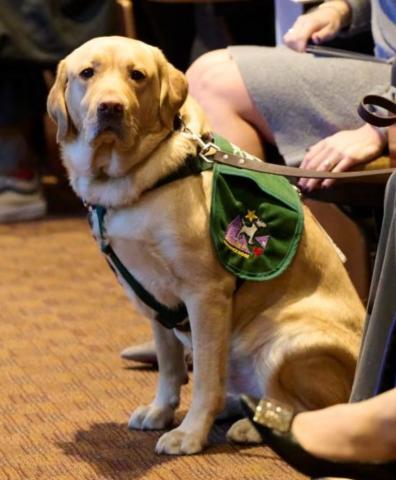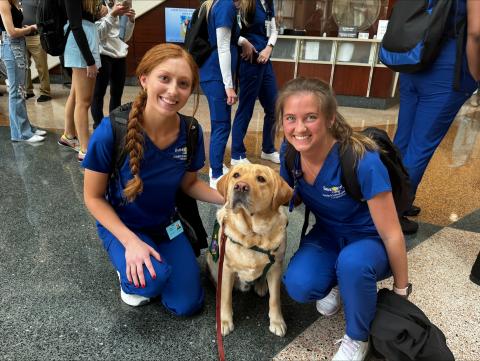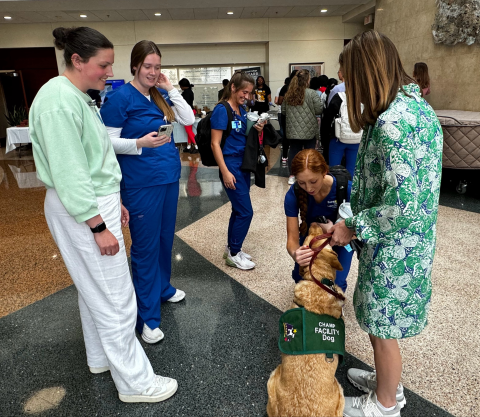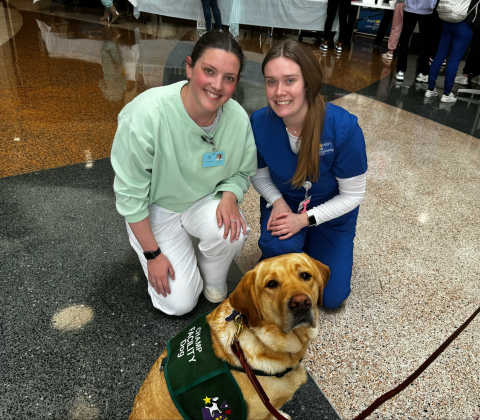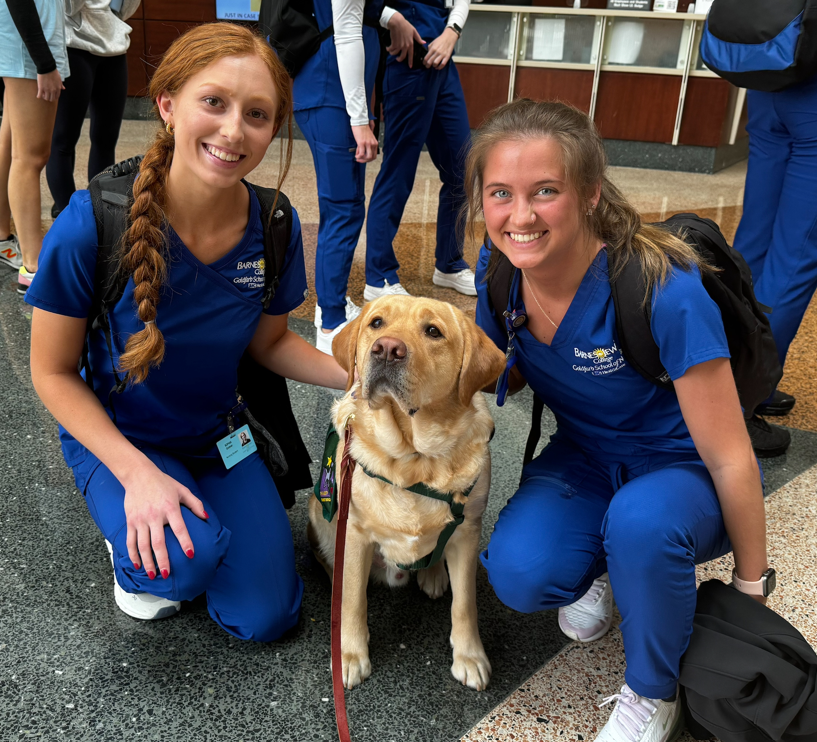A Furry Approach to Preparing Healthy, Resilient Nurses
Our country is in the middle of a mental health crisis. Nearly one in five American adults will have a diagnosable mental health condition in any given year. That includes 42.5 million adults with anxiety and 21 million adults with depression. Various forms of mental illness — from mild to severe — touches nearly every family. In fact, 46% of Americans will meet the criteria for a diagnosable mental health condition sometime in their life.
The pandemic deepened the crisis. Since nurses were on the frontlines during the most dangerous, heart-wrenching periods, the impact left a painful scar on both the nursing profession and nursing students.
Recognizing the new reality, the leaders at Barnes-Jewish College Goldfarb School of Nursing decided to do something about it. Angela Clark, PhD, MSN, RN, CNE, the Maxine Clark and Bob Fox President of the College, brought a wealth of mental health background with her when she assumed her role in May 2022. For the past two decades, Dr. Clark has been an advocate for mental health through her research and in higher education leadership roles.
“Since the pandemic, mental health issues are increasing and profoundly impacting the quality of life, and the ability to learn, engage, provide patient care, and to stay in the nursing workforce,” Dr. Clark says. “In addition, an increasing number of students in higher education are reporting their struggle with anxiety, depression, post-traumatic stress disorder, and other mental health conditions. These challenges are debilitating in a competitive academic nursing environment and as a team, we’re wrapping our arms around them and increasing support.”
She continues: “Nursing is a highly stressful role so it's critical to ingrain self-care strategies for mental health and wellness in students now before they transition to high-intensity clinical nursing roles.”
At Barnes-Jewish College, faculty and staff support student mental health through a variety of avenues, from engaging in mindfulness-based stress reduction workshops and mental health first aid training, to delivering a series of student success programming to support he health/well-being of students. "As part of these offerings, the team has brought in service dogs during midterms and finals and has seen the positive impact the dogs have had,” Dr. Clark explains. “Research has shown that just petting a dog decreases stress and anxiety levels and boosts our oxytocin. Our team realized the canine visits twice a term weren't enough." The team requested an in-house dog, so Dr. Clark went all in personally — which has become her signature style.
“My family personally supports student mental health through a fund we established at The Foundation for Barnes-Jewish Hospital,” she explains. “These funds directly support students’ needs, and college-wide training, but we’re also using them to provide evidence-based mental health support through our own facility dog.”
Dean of Snuggles Focuses on Mental Health
In March, a 2-year-old Labrador Retriever named Mr. Barnes became the College’s first-ever full-time mental health mascot — with an official title of Dean of Snuggles. Dr. Clark began extensive training with the CHAMP Assistance Dog in September 2023. Mr. Barnes, named by students, lives with Dr. Clark and her family, and she brings him to the College each day as his official handler.
“We made the decision to add Mr. Barnes to our team as part of our commitment to normalizing and elevating conversations about mental health,” Dr. Clark says. “He has an important job as a full-time mental health support dog to comfort and support our students and team members. Our mental health and well-being requires active reflection and engagement in support systems. Our students are living this and it is our hope that they will go forward with attention to a well current state, and actively engage in strategies for additional support leading to well, resilient nurses caring for the community.”
Debbie Mettlach, administration and operations director at the College, is in training to be a secondary handler for Mr. Barnes. She has personally experienced the calming effect he brings. “If he senses I’ve had a rough day, he lays at my feet — he just knows,” she says. “When we take him to the Commons area, the students’ faces light up and you can see the stress lowering. He lightens the mood."
Mr. Barnes
